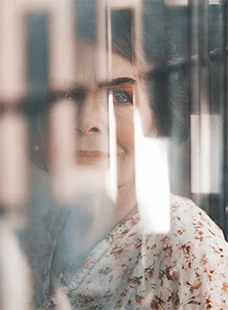

“Life on the streets has been very difficult,” she says.
KG has no health insurance. She doesn’t qualify for Veteran’s Administration (VA) coverage, nor is she eligible for Florida’s limited Medicaid program. She receives primary care at the Broward County Health Clinic but is worried that without insurance she won’t be able to receive in-hospital or specialty care when she needs it. She is already heavily saddled with medical debt. Public clinics also have co-pays and deductibles for visits and medications which she can’t afford. She is able to get her diabetes medication and some antibiotics free at a grocery store pharmacy for now.
“They actually charge you more if you don’t have healthcare insurance,” she says. “You get a bill and it adds up to where you can’t pay and then they send it to a collection agency.”
What weighs on her the most is her lack of stable housing. Even when she was working, her pay wasn’t enough to pay for an apartment and all her other living expenses.
“It’s a shame and a scandal to have so many homeless people in the community. Florida is a place where people come on vacation or to second homes but there’s nowhere to go if you’re homeless,” she says. “Most people are living paycheck to paycheck,”
she says, with older people having the worst of it.”
Florida should build more housing where people on limited income can pay a portion of the rent, she suggests. The wait lists are so long, she notes, it seems like they’ll never call your name.
“No one cares about helping people when they get older and need healthcare and can’t afford to buy food,” she says.
Her struggles have weighed heavily on her, and she was recently diagnosed with depression. But she has been unable to get treatment or medications to treat her mental health.
“I try to function through it,” KG says. “I don’t let it get to me. In a crisis situation like this pandemic, someone who enlisted, who helped defend our country should be helped. I’m a human being.”
Still, she remains hopeful her life will turn around and she is willing to get a new start with training and education in a new field.
“Even at my age, I want to better my education,” she says. “People can do better if they can get help. But without the resources, how can they?”
“Life on the streets has been very difficult,” she says.
KG has no health insurance. She doesn’t qualify for Veteran’s Administration (VA) coverage, nor is she eligible for Florida’s limited Medicaid program. She receives primary care at the Broward County Health Clinic but is worried that without insurance she won’t be able to receive in-hospital or specialty care when she needs it. She is already heavily saddled with medical debt. Public clinics also have co-pays and deductibles for visits and medications which she can’t afford. She is able to get her diabetes medication and some antibiotics free at a grocery store pharmacy for now.
“They actually charge you more if you don’t have healthcare insurance,” she says. “You get a bill and it adds up to where you can’t pay and then they send it to a collection agency.”
What weighs on her the most is her lack of stable housing. Even when she was working, her pay wasn’t enough to pay for an apartment and all her other living expenses.
“It’s a shame and a scandal to have so many homeless people in the community. Florida is a place where people come on vacation or to second homes but there’s nowhere to go if you’re homeless,” she says. “Most people are living paycheck to paycheck,”
she says, with older people having the worst of it.”
Florida should build more housing where people on limited income can pay a portion of the rent, she suggests. The wait lists are so long, she notes, it seems like they’ll never call your name.
“No one cares about helping people when they get older and need healthcare and can’t afford to buy food,” she says.
Her struggles have weighed heavily on her, and she was recently diagnosed with depression. But she has been unable to get treatment or medications to treat her mental health.
“I try to function through it,” KG says. “I don’t let it get to me. In a crisis situation like this pandemic, someone who enlisted, who helped defend our country should be helped. I’m a human being.”
Still, she remains hopeful her life will turn around and she is willing to get a new start with training and education in a new field.
“Even at my age, I want to better my education,” she says. “People can do better if they can get help. But without the resources, how can they?”

